Orienting
Oak comes to the rescue, yet again. This laptop sits on a cork mat which prevents the cold hard aluminium edge of the camping table, which provisionally serves as my writing desk, from digging into my my wrists. I send heartfelt thanks to the cork oaks of Spain, Portugal and southern France, where the raw materials for this mass-produced natural cork-fragment mat were likely harvested. Years ago, visiting the chalet in Provence belonging to a family friend, I was struck by the cork oaks on the hillsides. Pale, stripped of their precious bark up to the height of the pollard, they looked like strange arboreal lambs after first shearing, likewise suffering no harm, perhaps only a sensation of sudden bareness to the elements no human could ever know.
I look out north onto parking spaces, some brick walls, a patch of grass, mixed hedging, heavily-laden decorative hybrid crab apple trees and the tall sycamores, cherries and shrubs of the golf course boundary, from where an owl greeted us on our first night here. Abundant grape ivy is offering bees their last forage of autumn of fragrant yellow green sputniks of honey-scented blossom. In a few months, they’ll transform into the purplish black first fruits of the year for winter-hungry blackbirds and also provide the very first colour of this ink-maker’s year: the highly mutable hues of ivy berry ink - green, purple, black, even, depending on the pH of chosen additives. Just one small handful is enough to make a bottle. January sees challenges enough for British birdlife without needing the addition of an avaricious colour-woman.
Blue tits flit amongst the crab apples, a pair pass this window regularly.1 Edge of town bats will take over for the evening shift. Like an autumnal wind, my writing desk has veered 90 degrees from west to north and with it not just the air has freshened. It is good to be here writing some words to you, now that wifi has been connected and I do not have to peer into my phone to write on Substack. You’ll notice the bare branch section dividers also disappeared last week. It’s time for something new, to honour the many changes. I feel crab apple branches hold the key, via pen and ink, soon.
Stillness in the north
Neither adrift nor becalmed, but something else entirely. My go-to nautical analogies have not travelled with me, remaining at anchor in Southbourne, along with a few of my bigger framed artworks and a Tibetan thangka, to brighten my friend’s flat. I am tired and have a bit of a cold but am well enough to get back to the online world from which I have been hiding for 11 days. I had hoped to go and sing Sacred Harp for the first time tonight in Newcastle but feel spreading lurgy at such an event would be an inauspicious start. It is physically strange to type after so many days with mainly cardboard boxes, bottles, jars, paper, picture hooks, tools, tape, string, galls, baskets, apples and textiles passing through my hands and almost no time spent on networked screens. So much doing but in that way that feels like a dream, no overthinking, just putting the next thing away, in the hope that it has found its place, me and the objects, both.
Doing without overthinking attached is a T’ai Chi way towards the famed Taoist wei-wu-wei (‘doing without doing’)2 and mindfully making home, preparing meals, mending things and getting shopping in a new place have all been privileges blessings this week. The news of bombed, chased, homeless people is never far from our thoughts, even without turning on some infernal device to check what fresh hell some warlike state, or our own country’s government, has cooked up. This moment is also not without personal difficulty; neither of us had any idea quite how invasive and pervasive the access of the state to my own financial, work and personal life would be, nor how far-reaching the effects would prove on my future planning, earnings and ability to just ‘do my own thing’, now that we are officially living together. As someone who has been self-employed since the age of 24 and totally financially self-reliant since 2006, I mostly remember to balance the discomfort of state scrutiny with gratitude that I live somewhere with at least a partially functioning welfare system for people with chronic health conditions.
I am experiencing the period of adjustment of a newly transplanted shrubby herb. Great care has been taken over the siting, aspect and soil. Water, air and light are provided gratis by the Great Mystery, via the condensation of the angel’s share of the Tyne, the action of gravity on bodies possessing mass, and the electromagnetic emanations of our nearest star. I thank Physics for its pared-back beatitudes, rarely bettered by a poet. Although I feel I certainly will, whether or not I root and sprout well again is truly out of my hands. And so I turn to silent, spoken and embodied prayer.
Malus, quercus, rosa
This week I took my smaller basket for a walk up the hill to knock on the door of whoever owned the apple tree under which lay a carpet of windfalls, after Storm Amy came to town and shook them down like lasses out on a Hen Night, winning big on the pub slots. I rang the doorbell and shortly met David, who not only said I could glean windfalls whenever I passed by but showed me a crate of apples already stashed in his garage. ‘Let me fill your basket,’ he said, ‘these are all spare.’ As he scooped up apples, he told me how he and his wife had moved to Hexham from the much windier hills by Vindolanda (the ruin of a large Roman era fort on nearby Hadrian’s Wall) so they could be closer to what they needed of ‘civilisation’ in their older age. He asked me how I’d ended up here so far from Dorset and warmly welcomed me to the area, saying we’d made a great choice.
Walking back down the hill, passing under giant oaks shedding so many acorns which I had no room in my basket to stash, I stopped to nibble two delicious types of rosehip. First I sampled the large, ornamental Japanese rosehips Rosa rugosa which in Britain are often planted as impenetrable hedges but are considered ‘invasive’ in the wild. The flesh of their huge hips is sweet, tangy and almost nectarine-like in flavour and I rarely get to taste it as so often it is growing beside busy roads. Second was the black rosehip of the Scotch or burnet rose Rosa spinosissima which I had seen before in hedges but never had a chance to forage. It was slightly prickly and a deep blackberry-black, which, as soon as scratched, bled a truly crimson juice all over my fingers. It was a perfect balance of sweet and tart, more like summer fruits flavour than traditional rosehip, and it will of course shortly be tested for ink-making. Both these hips were ready to eat even while traditional wild rose hips are still hard and best left ripening until November through January. To eat rosehips safely on the move, pick just one at a time and nibble around the flesh using your front teeth like a giant squirrel. Under the layer of colourful flesh there are cream coloured seeds covered with tiny hairs which you shouldn’t eat or inhale as they can be irritants. Throw the mostly-nibbled hips into the undergrowth to attain full squirrel consciousness.
Weight-lifting the basket home, I was glad I’d chosen not to bring my partner’s larger foraging basket. I added a handful of the fallen crab apples from behind our place, and headed inside. The oven is not working, and waiting replacement, so no apple crumble for us until then. I don’t live in a rural idyll, I am looking at the back of two parked cars as I write this. You don’t need to be in the country to attend to beauty, or to share it. I remain unapologetic in my devotion to ordinary beauty and the right of regular folk to commune with reality via meeting, greeting and eating their locale.
Apart from reading a chapter of Against the Machine each night, great pieces by Jack Leahy, Rosie Whinray, and Ralph H Sidway have been the only things I have had time to read since I arrived and my unread subscription page on Substack now looks long and inviting.3 At the end of his essay regarding a photographic pilgrimage to Orthodox monasteries and sacred places in North America, Ralph wrote about my recent conversation with Paul Kingsnorth. We have since messaged about craft as prayer, how embodied action can be a fulfilment of the Way, similarly, in both our paths. Today, my partner brought through John O’Donohue’s Eternal Echoes and read me the short chapter The Witness of Hands, (which I will read for you at the end of the audio version of this piece, as I cannot find it online). It feels of a oneness with what Paul, Ralph, myself and many other champions of embodied life vs virtual half-life for the last two centuries have felt compelled to say.
The use of simple tools still meant personal contact with nature. In these times we have crossed another threshold where the tool is replaced by the instrument. The instrument is a means of exercising a function. Instrumentalization is the whole functional world of the instrument as a means coming between us and life.
John O’Donohue - from p87 of ‘Eternal Echoes’
The bookshelves are fully packed, thanks to J, and mostly with his books which I long to dig into. The television is attached to my old-school DVD player and a CD player, turntable and amp sit happily between audio speakers, themselves sat on four sturdy crates of vinyl records, delighted to be out from years of cupboard exile. In making this home together, I feel like we are swiftly, subliminally, enacting many of
‘s excellent recommendations for an analogue life. A portion of it is by ‘lifestyle choice’, much is by inner yearning, parts of it are money or space-saving and all of these reasons are good. It’s been a long time coming.I can’t quite tell you why prayer took over for me from meditation about seven years ago, but I am glad that it did. It works in subtle ways alongside the Heart Work (seemingly) physical exercises and settles my heart. It allows me to include others and to give thanks, two things without which the rose of the heart withers.
Now I will make dinner. More food for thought next week, hopefully in the shape of an essay. Thank you for reading Uncivil Savant.
This week’s good thing: A piece of music by Jóhann Jóhannsson that I have loved for 20 years, which saw me through my move back to England from Aberdeenshire. I no longer own the CD and finally searched online for it. Here is a beautiful rendition of the work ‘Virðulegu Forsetar’. Watch, or just listen, as I did.
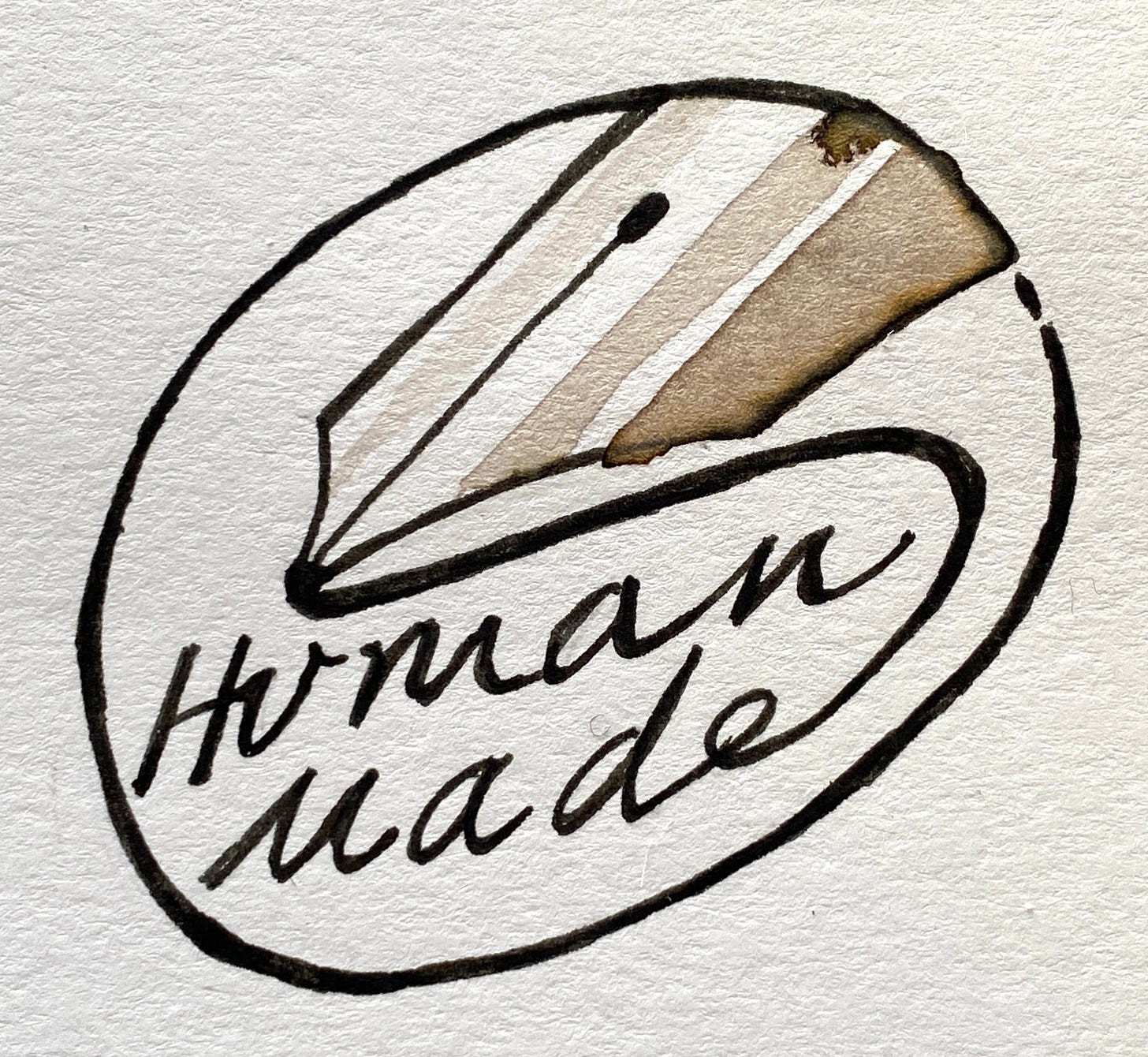
If you would like to comment but can’t afford a subscription, just reply to this email and I will comp you 6 months for free.
Someone on Substack asked me to say which birds I encountered first on arrival at our new home. The first we heard was a tawny owl on our first night and the first we saw out of the window was a pair of blue tits.
Also, ‘uncontrived action’, ‘action without a forceful mind’, ‘non-doing’, ‘effortless action’…
I don’t let it weigh on me - what a pleasure to have hours of good reading ahead when I have some time to myself at the weekend.



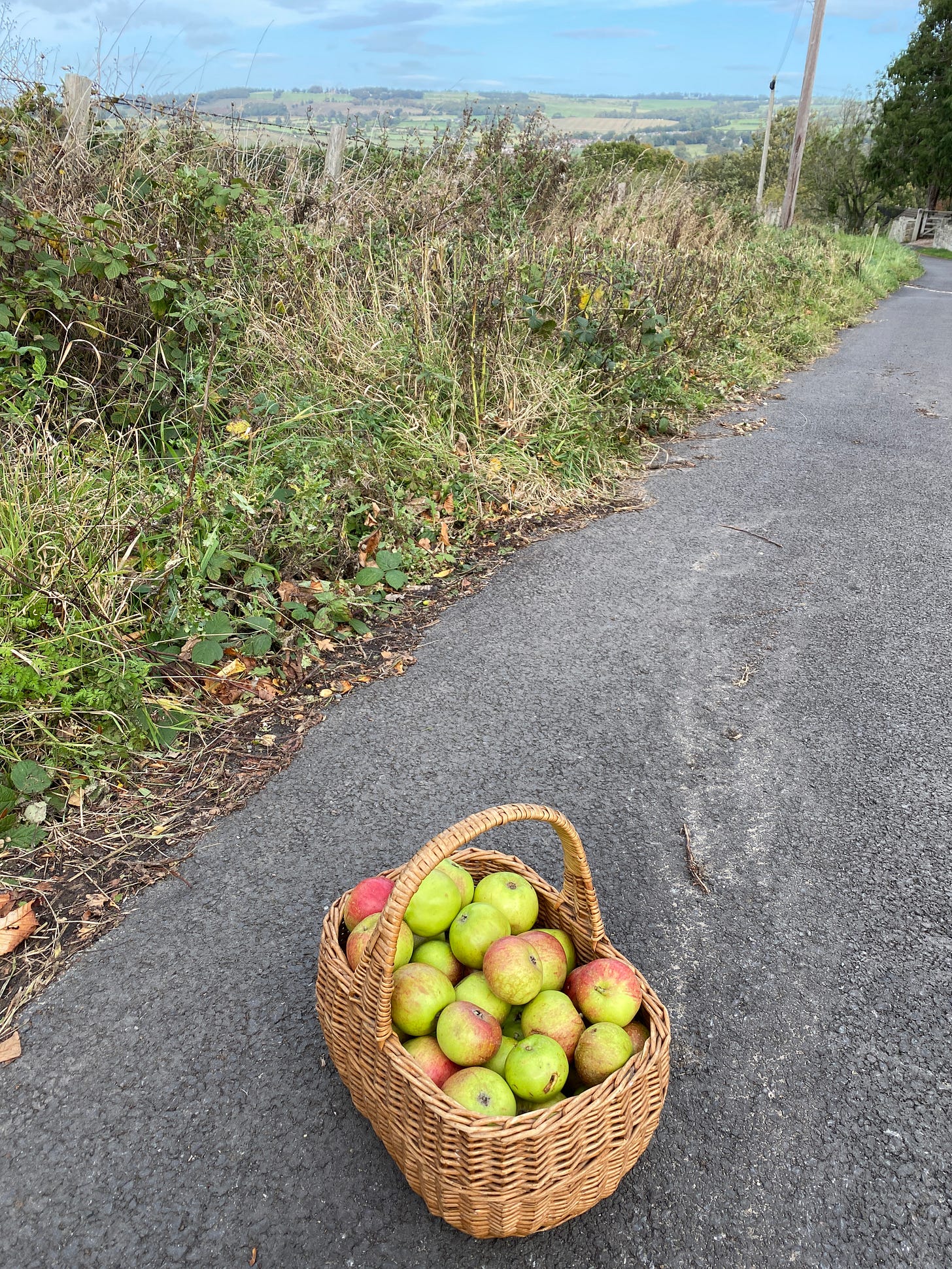
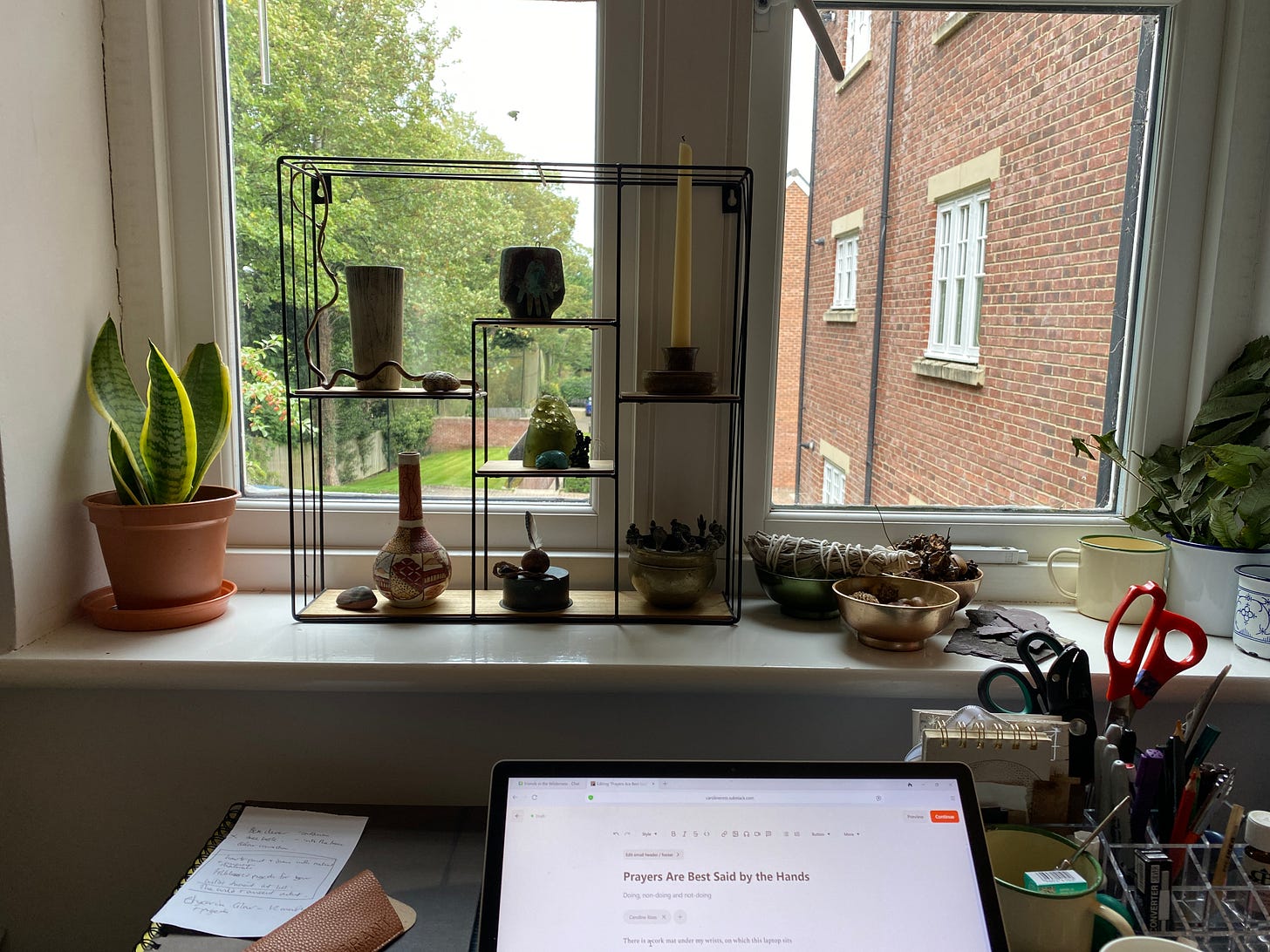
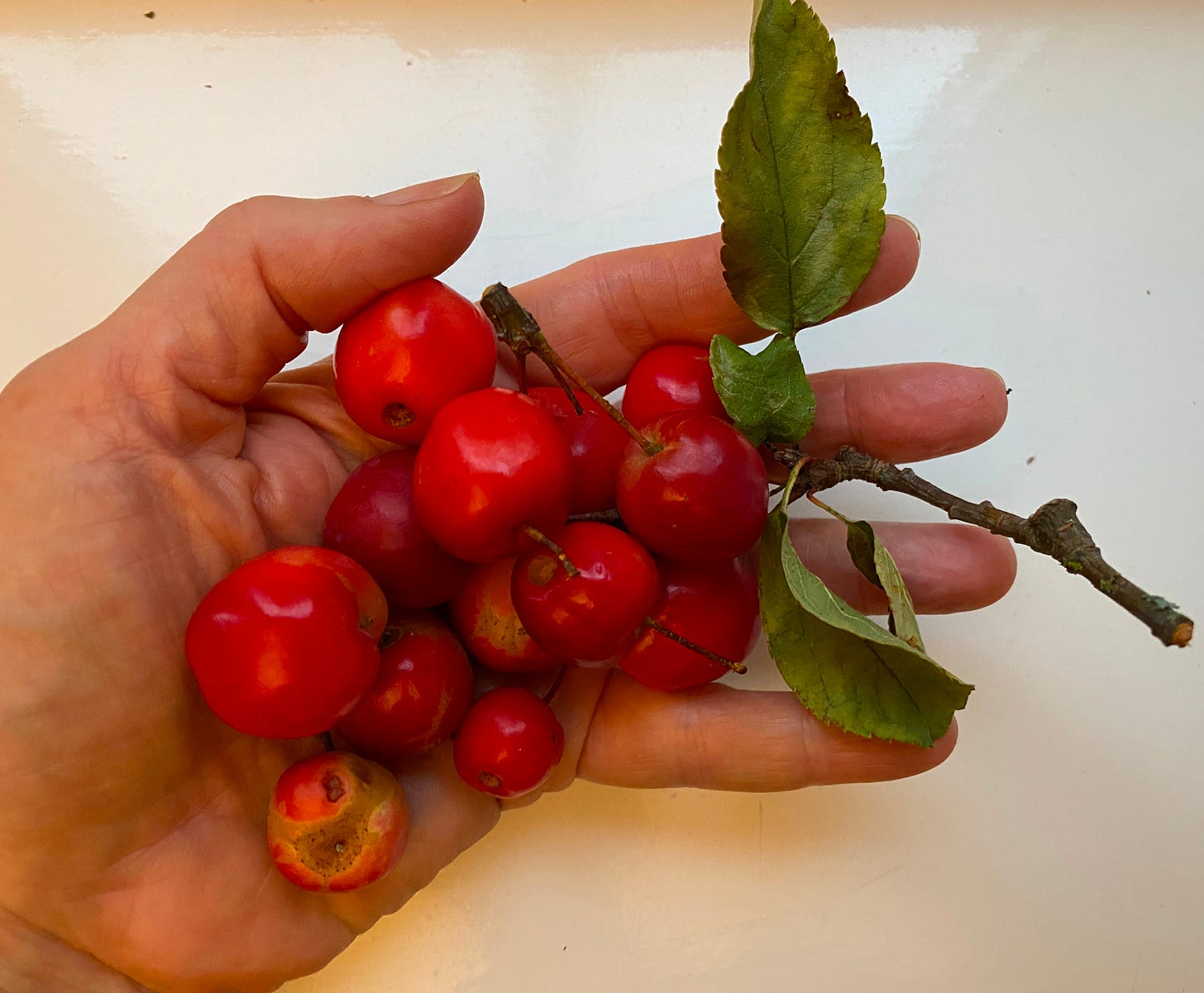
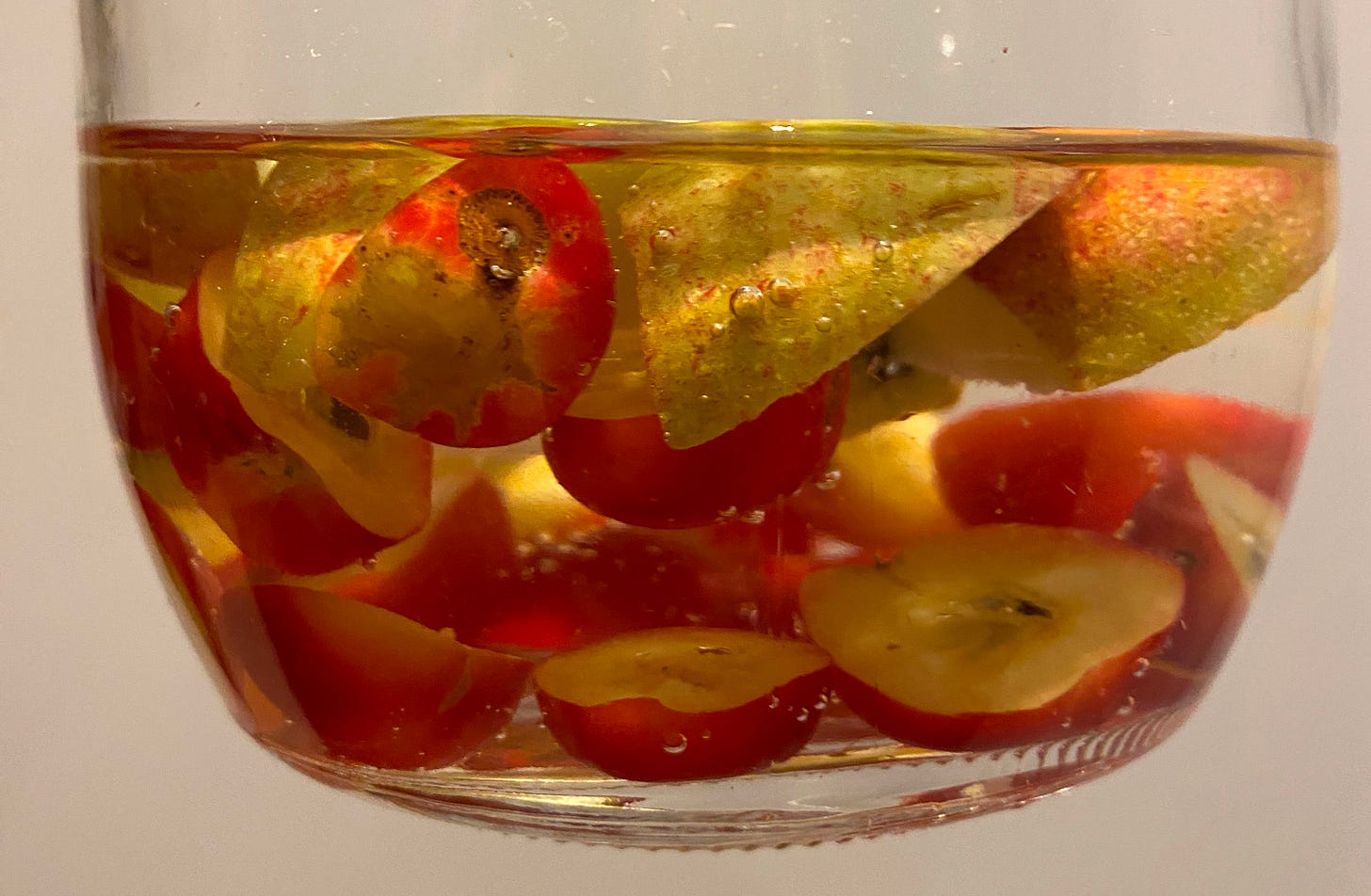
As a teenager, an aunt sent me this D.H. Lawrence quote. I thought it quite the most inspiring thing I’d ever read.
“Things men have made with wakened hands, and put soft life into are awake through years with transferred touch, and go on glowing for long years.
And for this reason, some old things are lovely, warm still with the life of forgotten men who made them.”
Even now, when I write or draw creatively my first draft is still always tactile, by hand, on paper, some notes even written with eyes closed, feeling my way down a page.
I always say to give me one person's story. It is worth more than all the analysis and pontification in the world. Thank you.